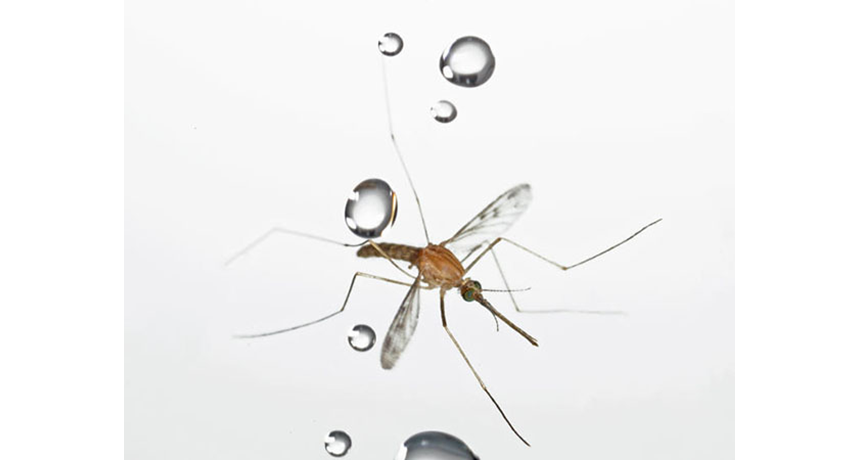Skeeters ride the rain
Mosquitoes survive collisions with raindrops by going with the flow

To a mosquito, being struck by a raindrop is like a midair collision with a bus. But scientists recently discovered that skeeters fare well when they hitch a ride on the raindrop.
Courtesy Tim Nowack, Andrew Dickerson and David Hu/Georgia Tech







